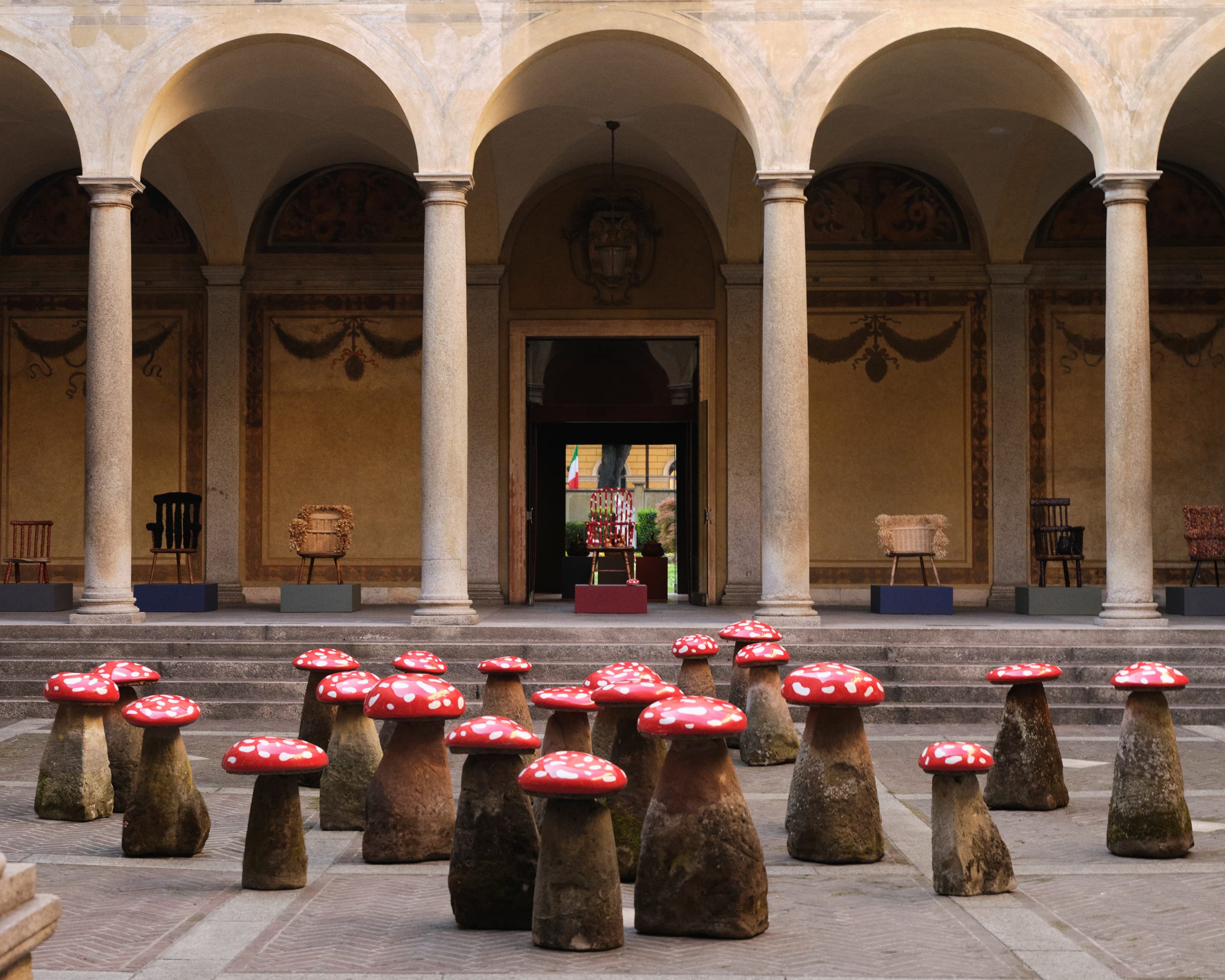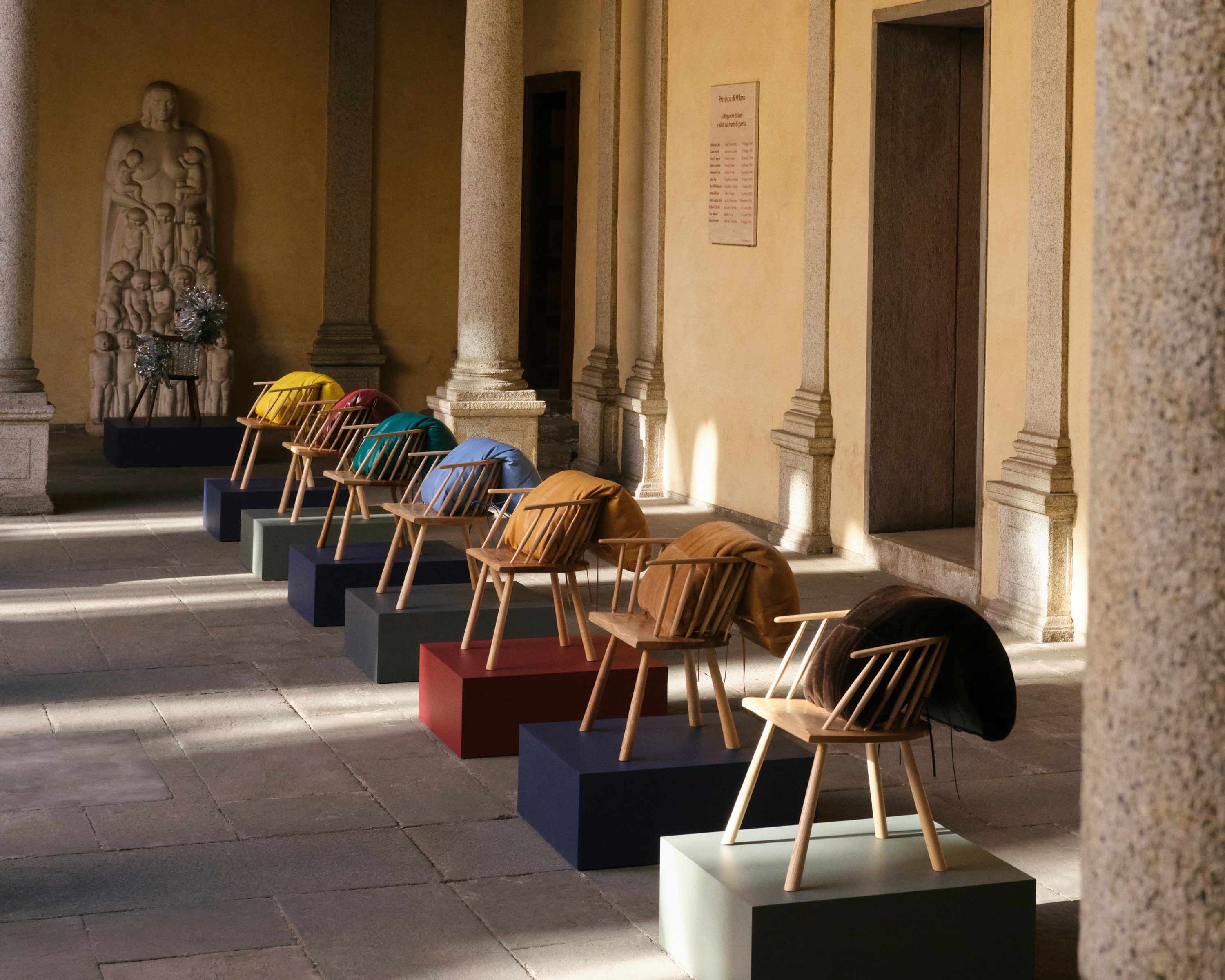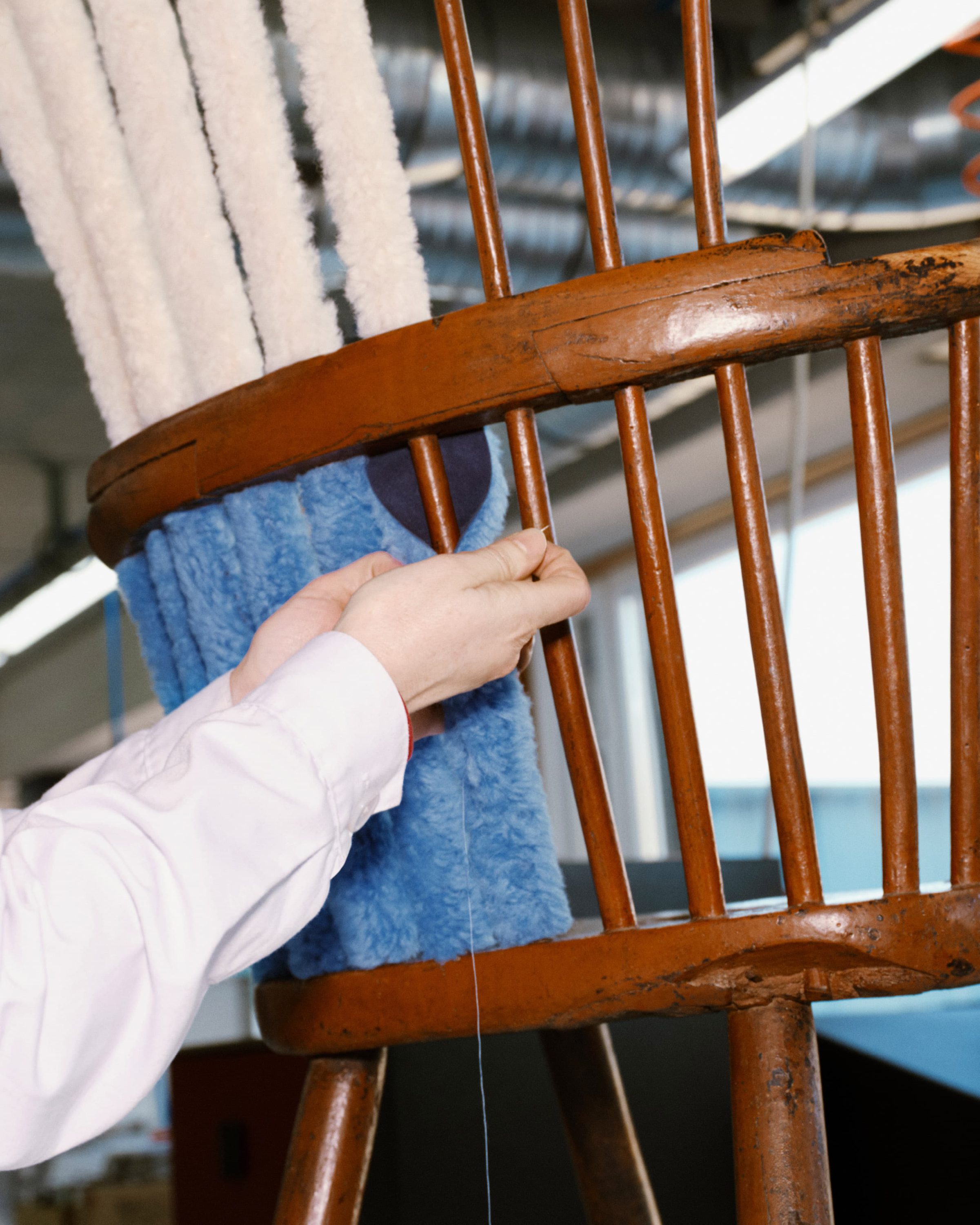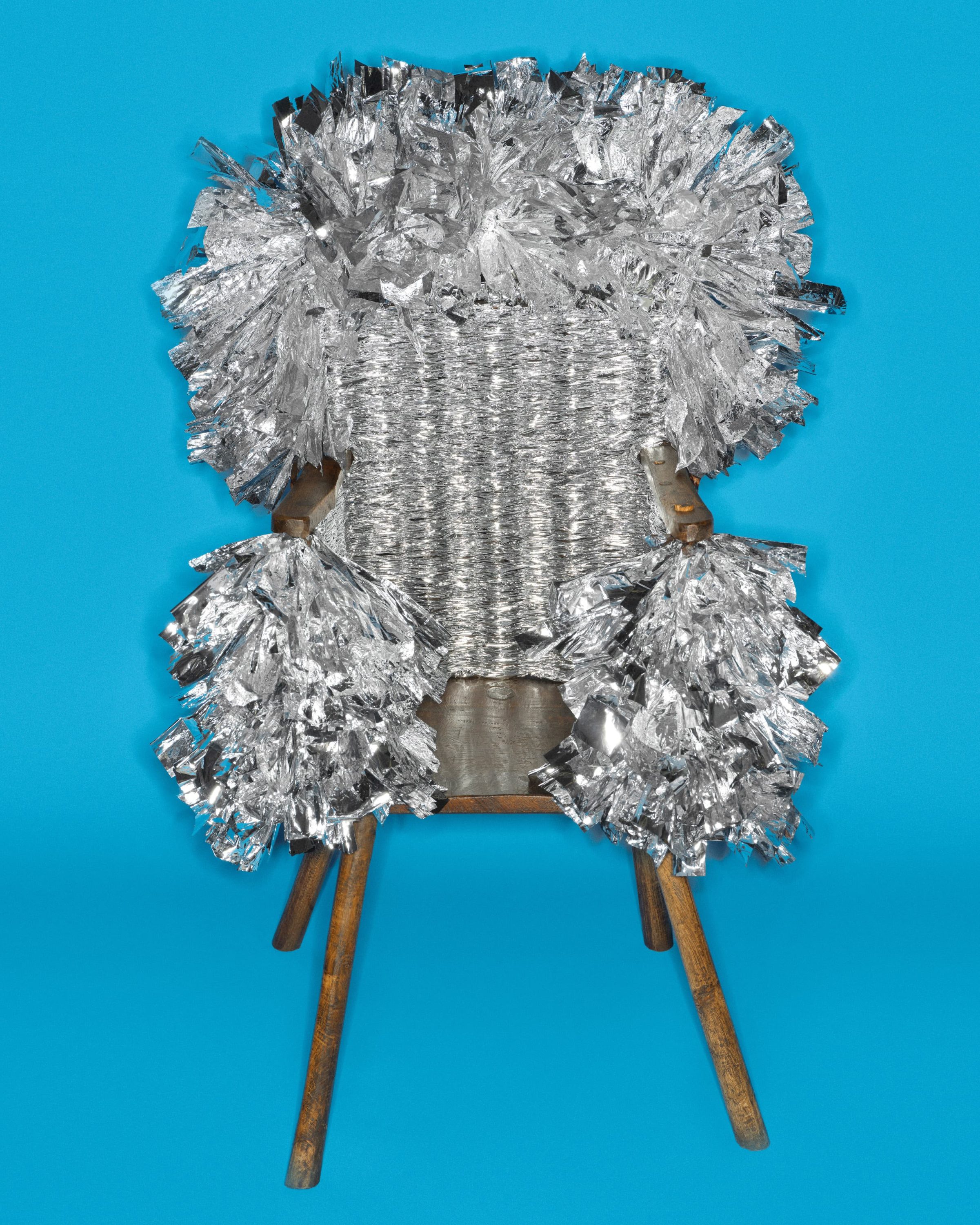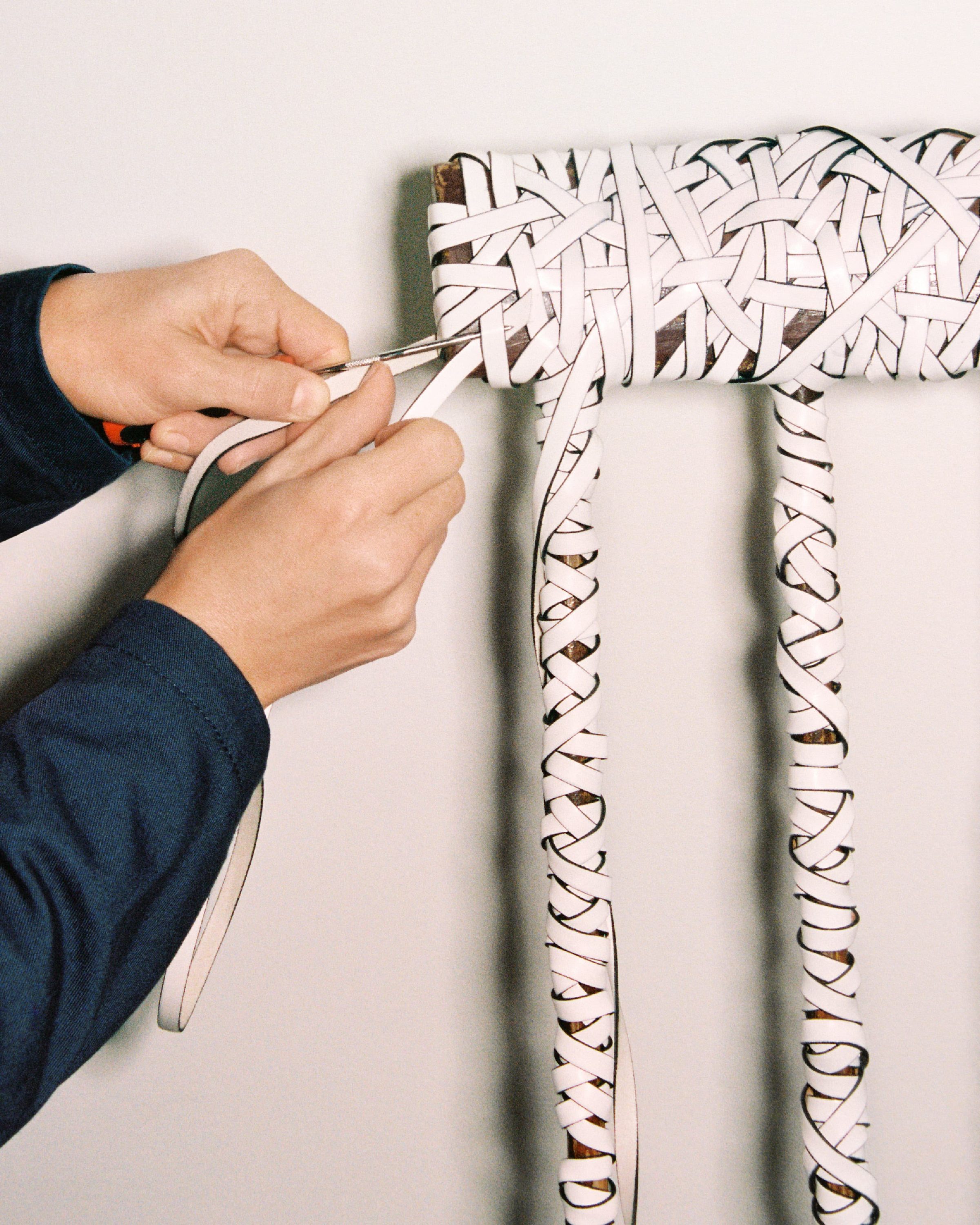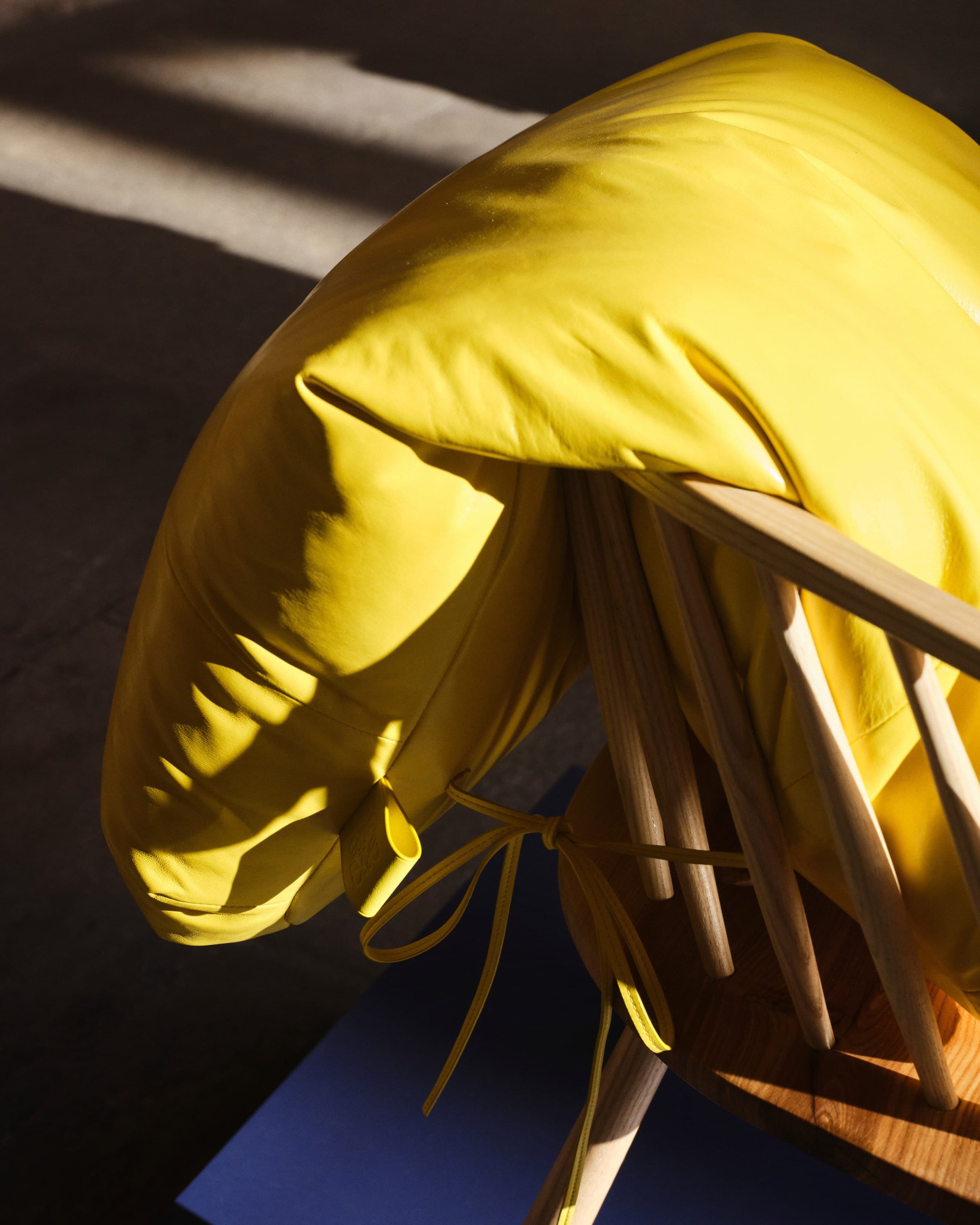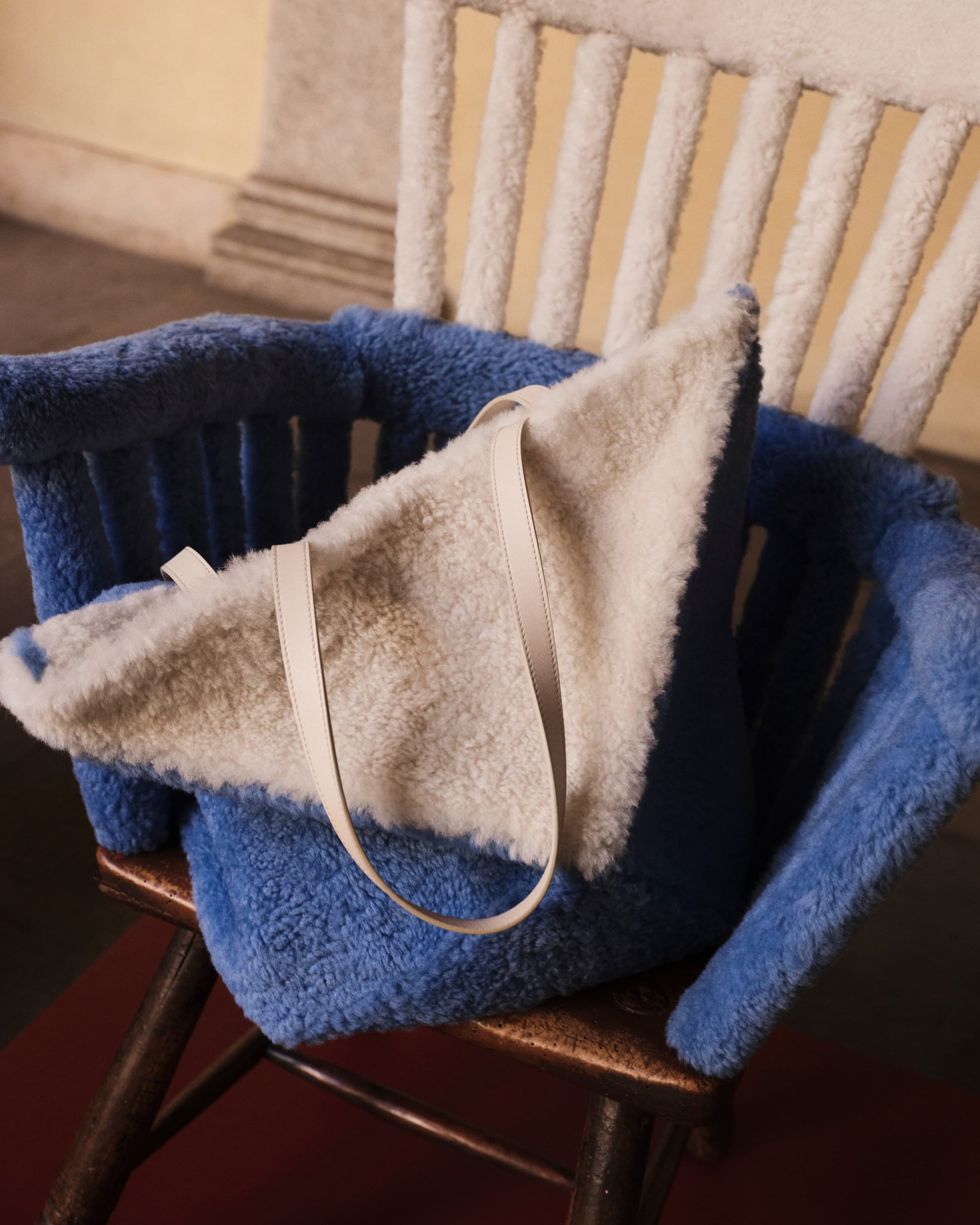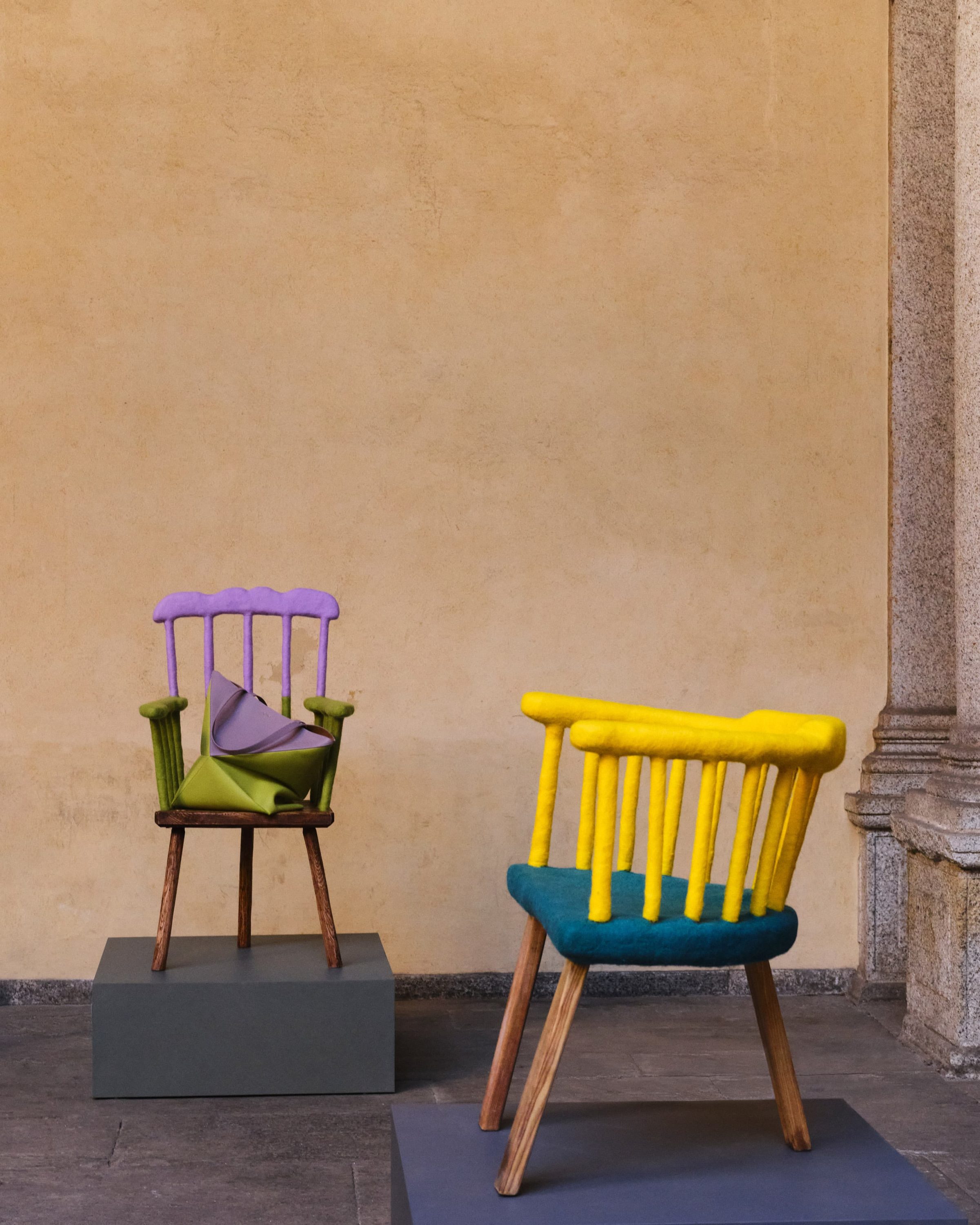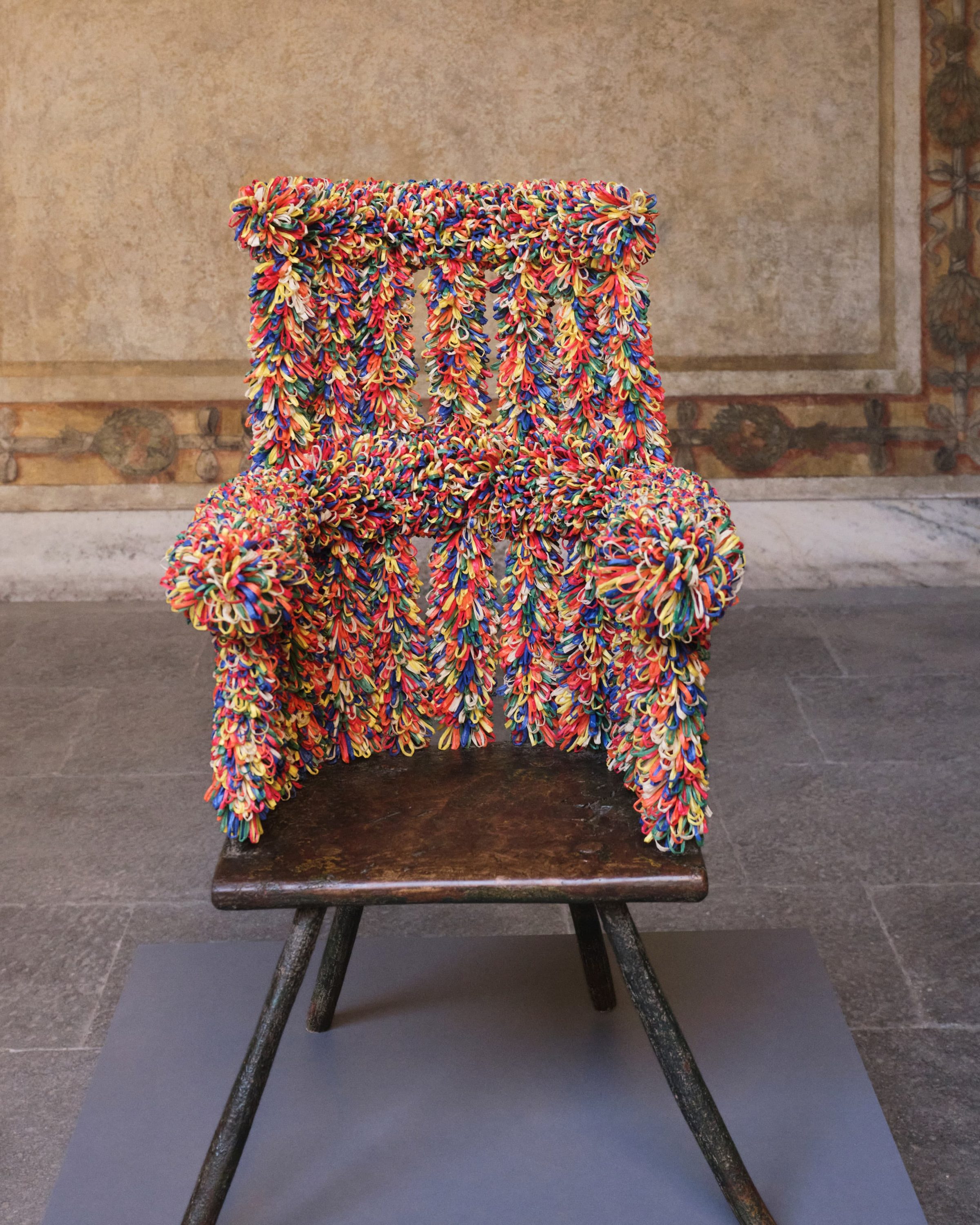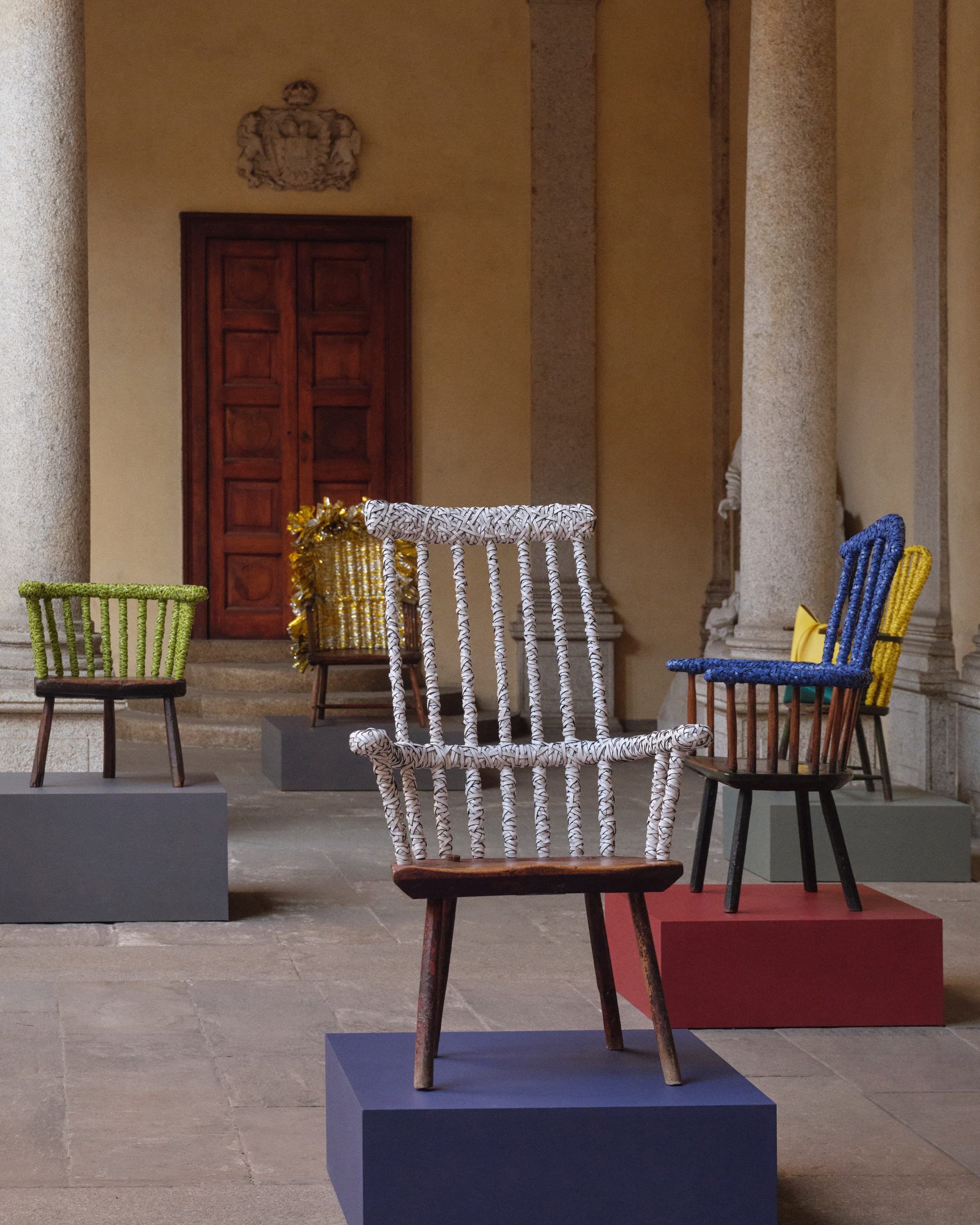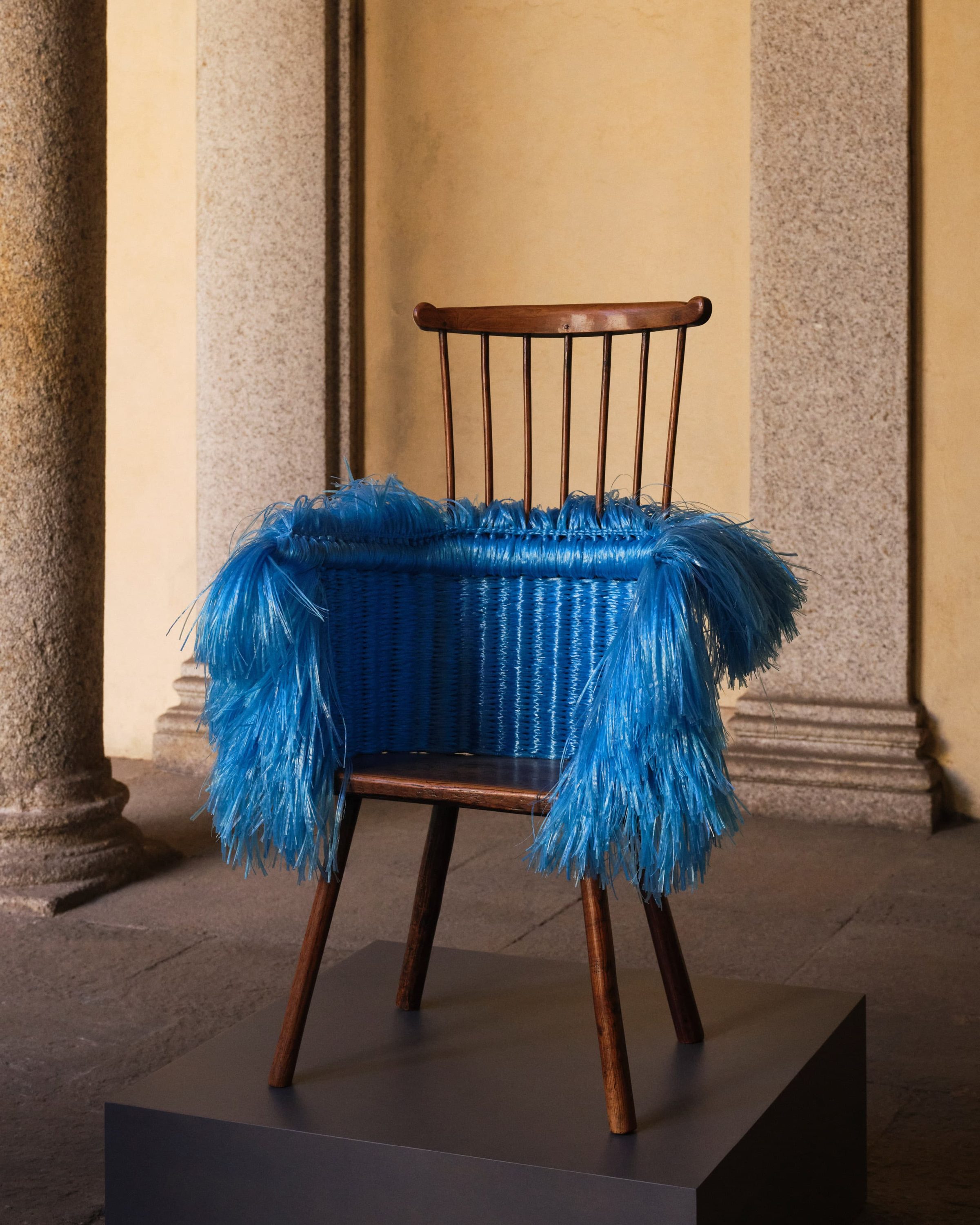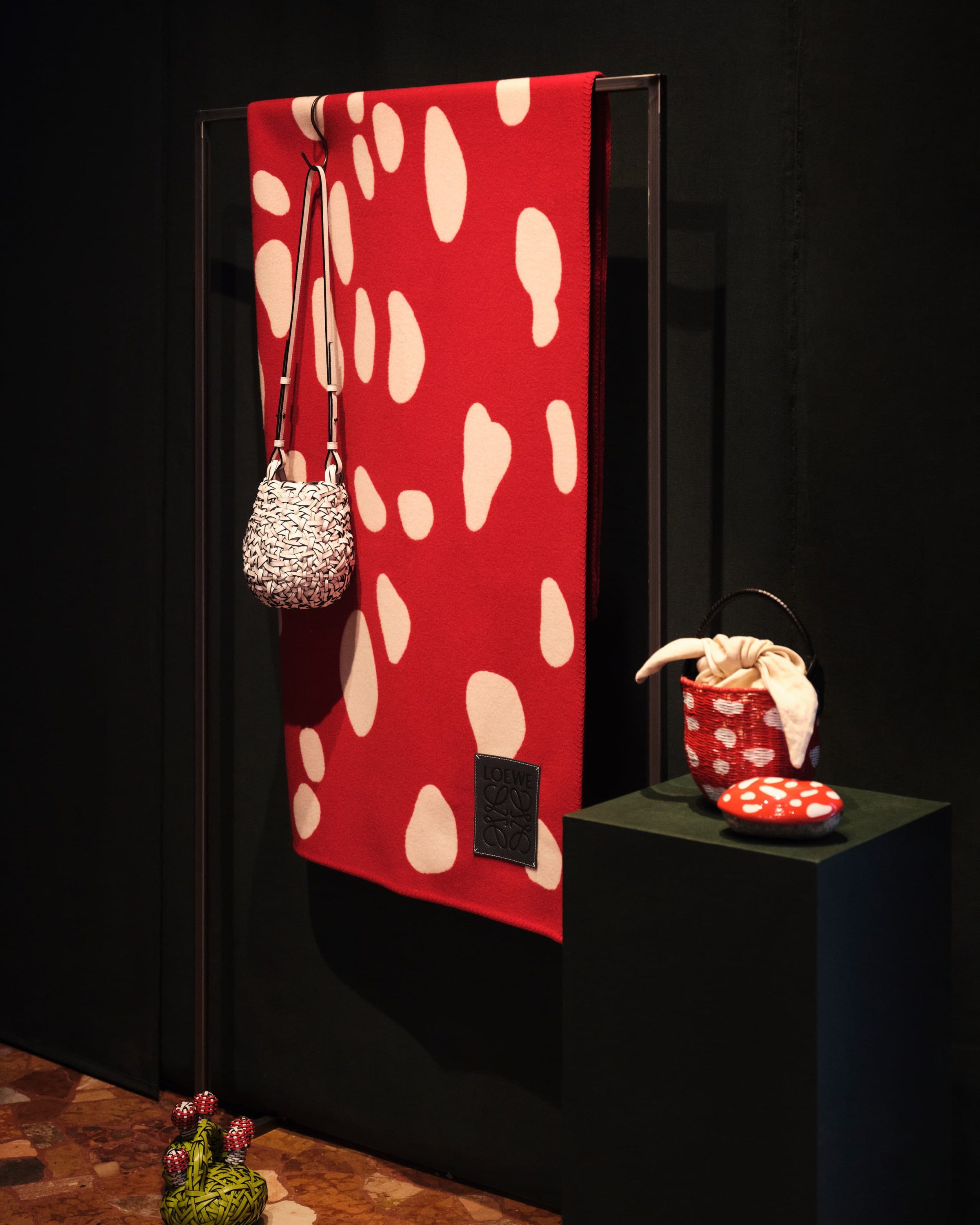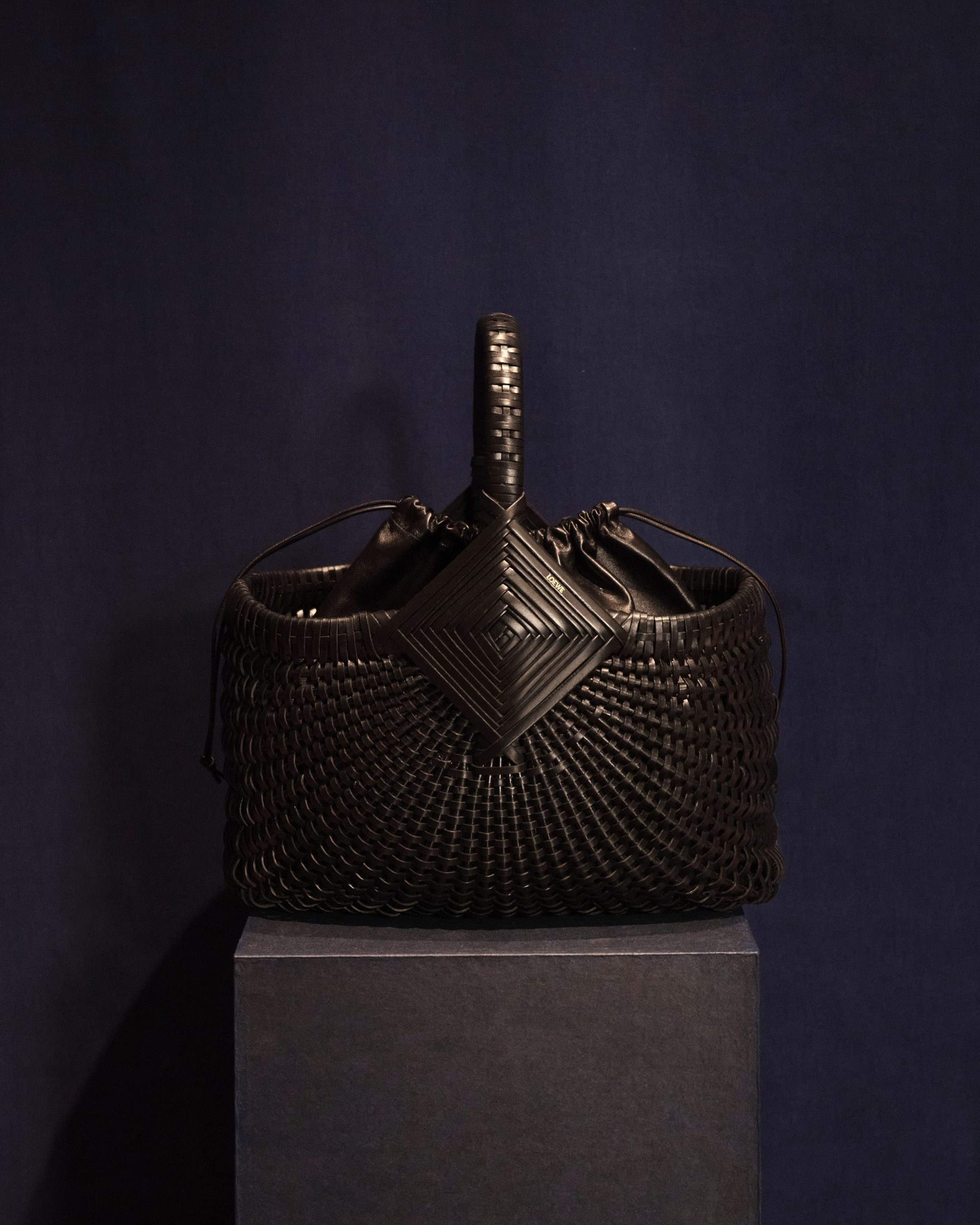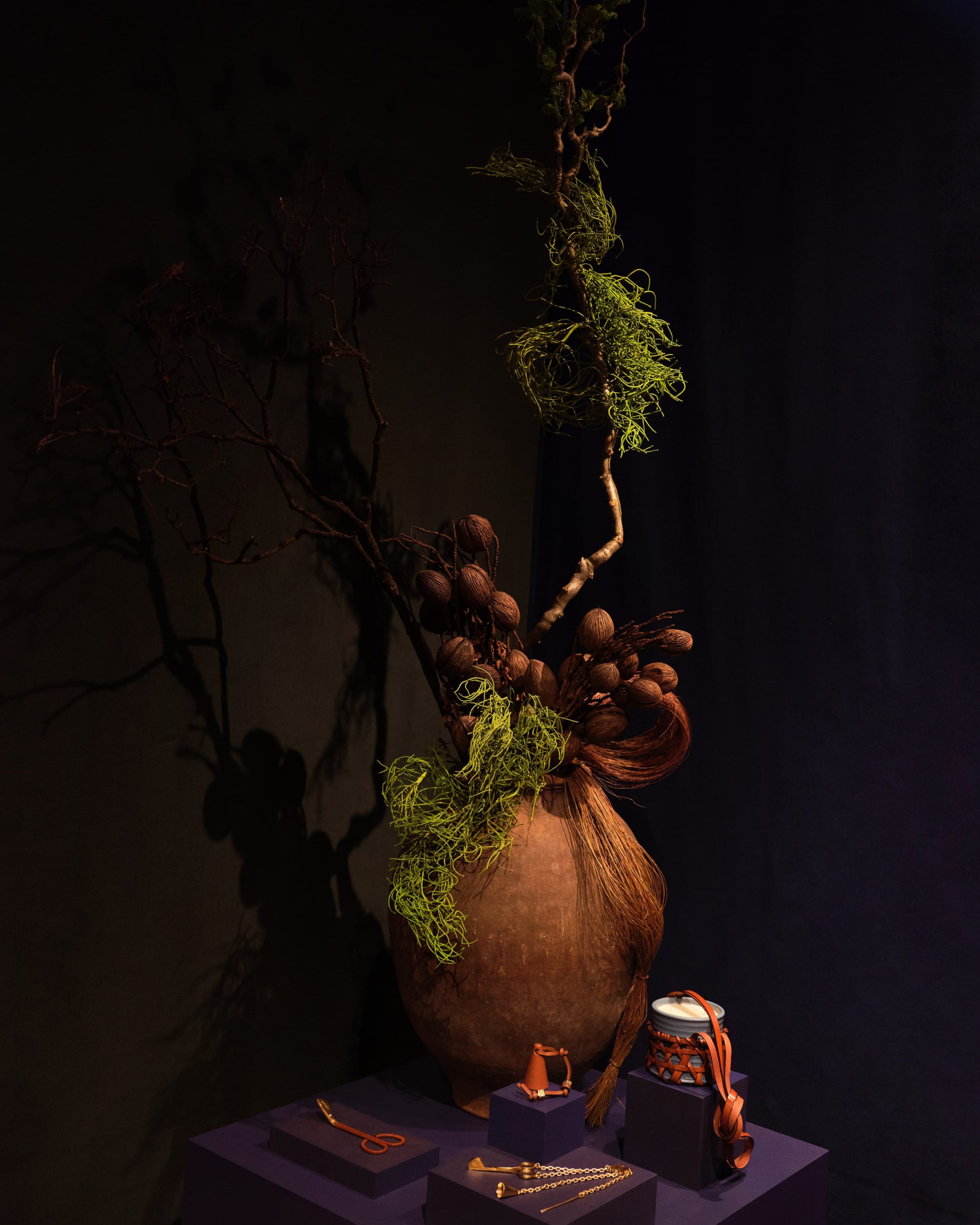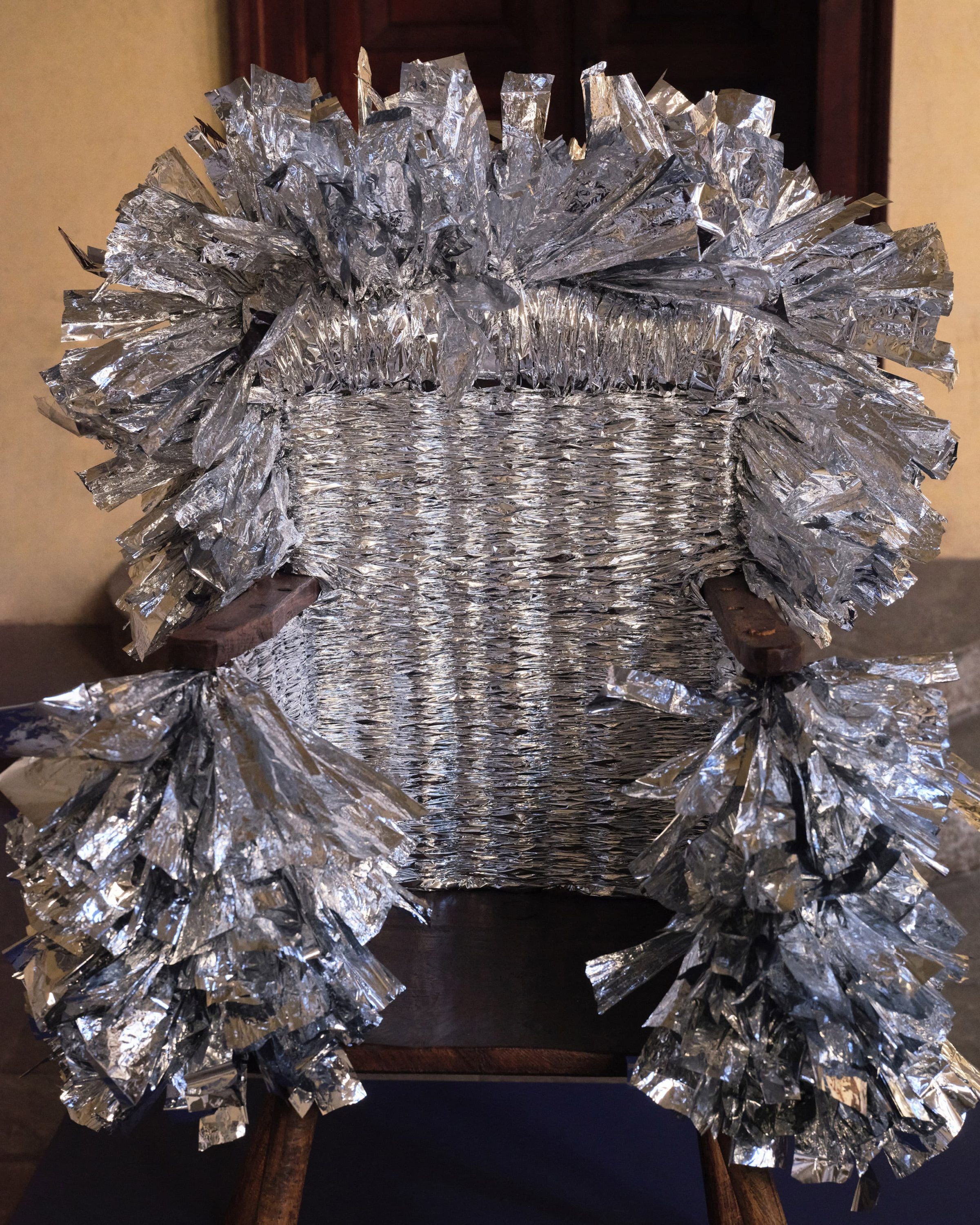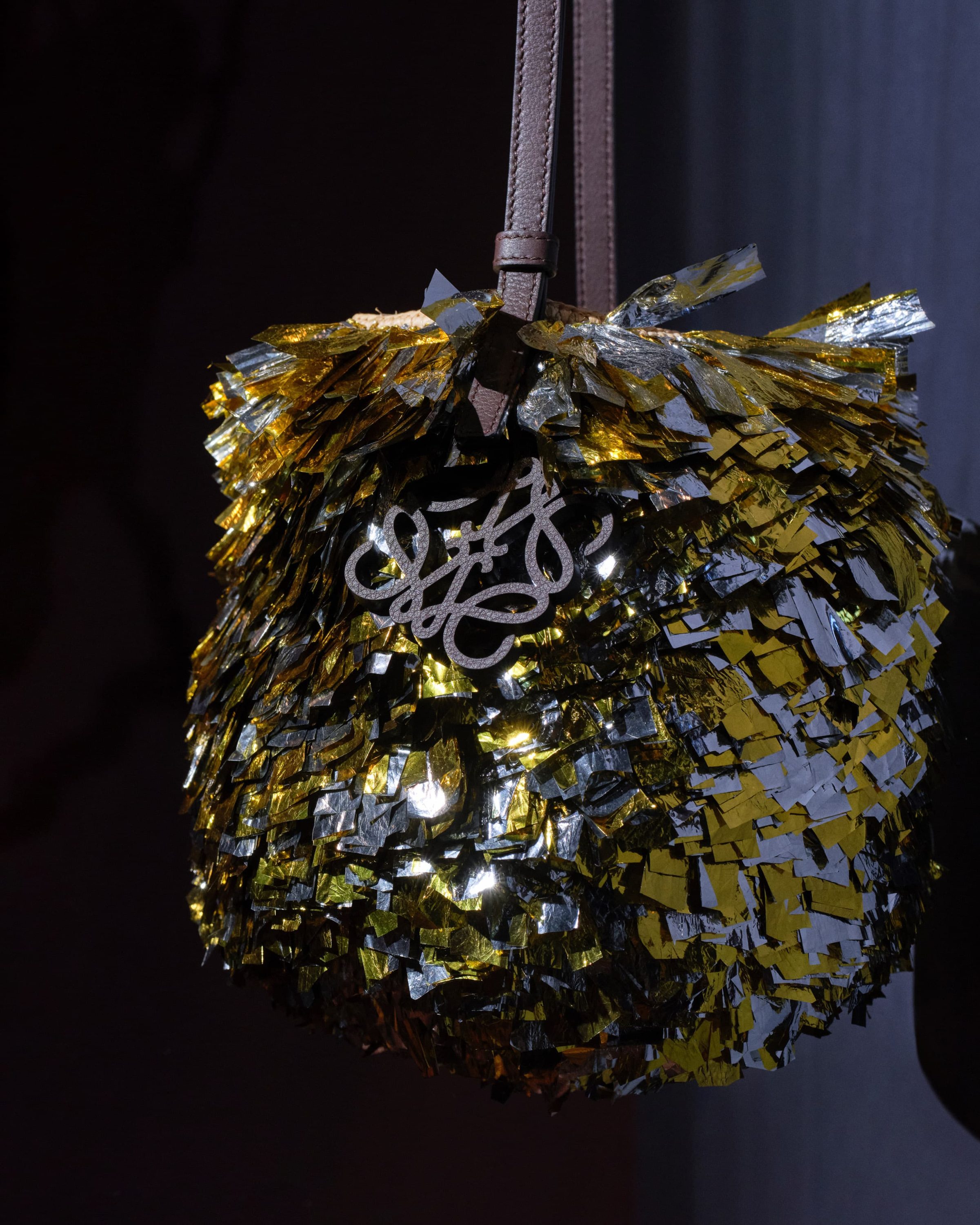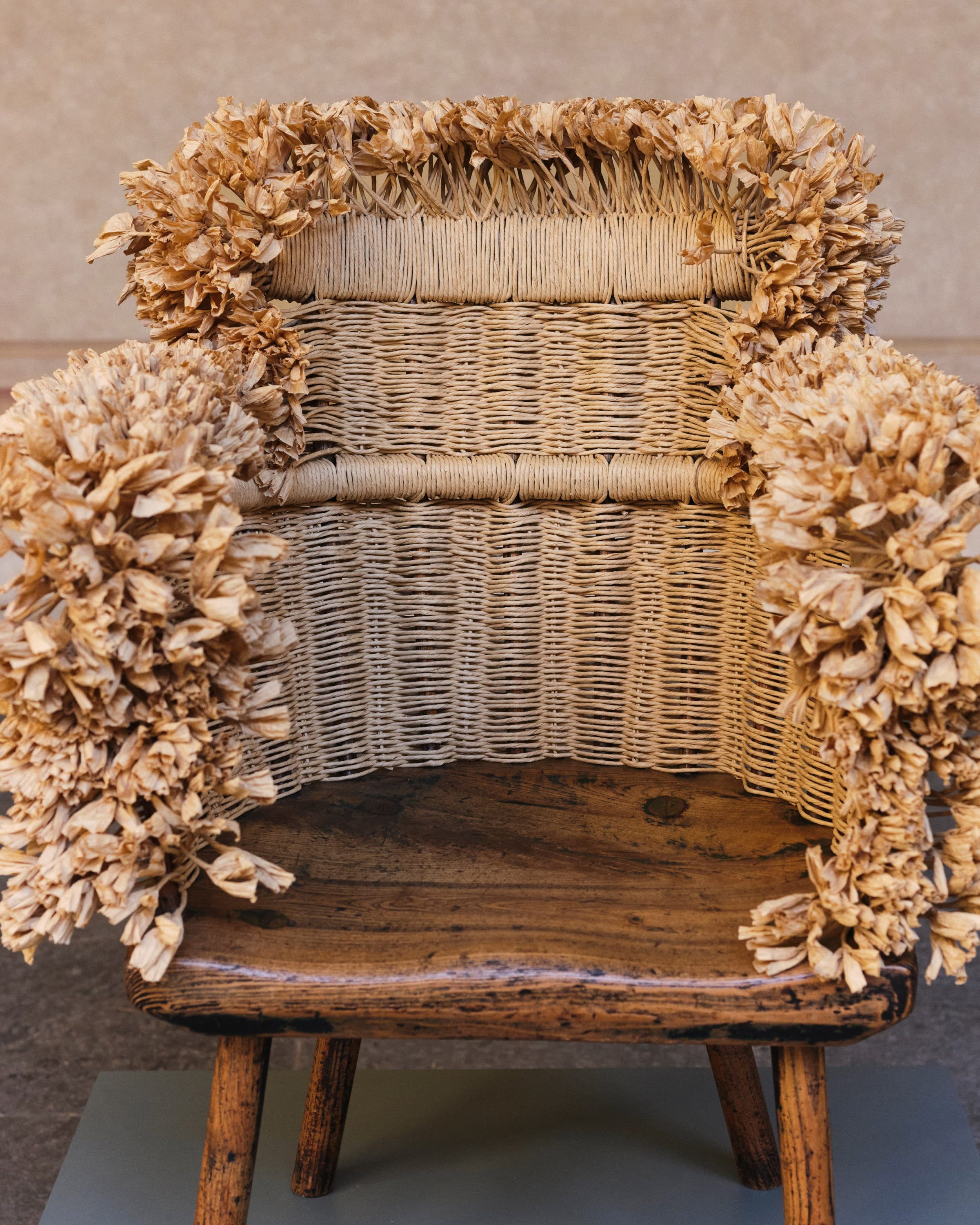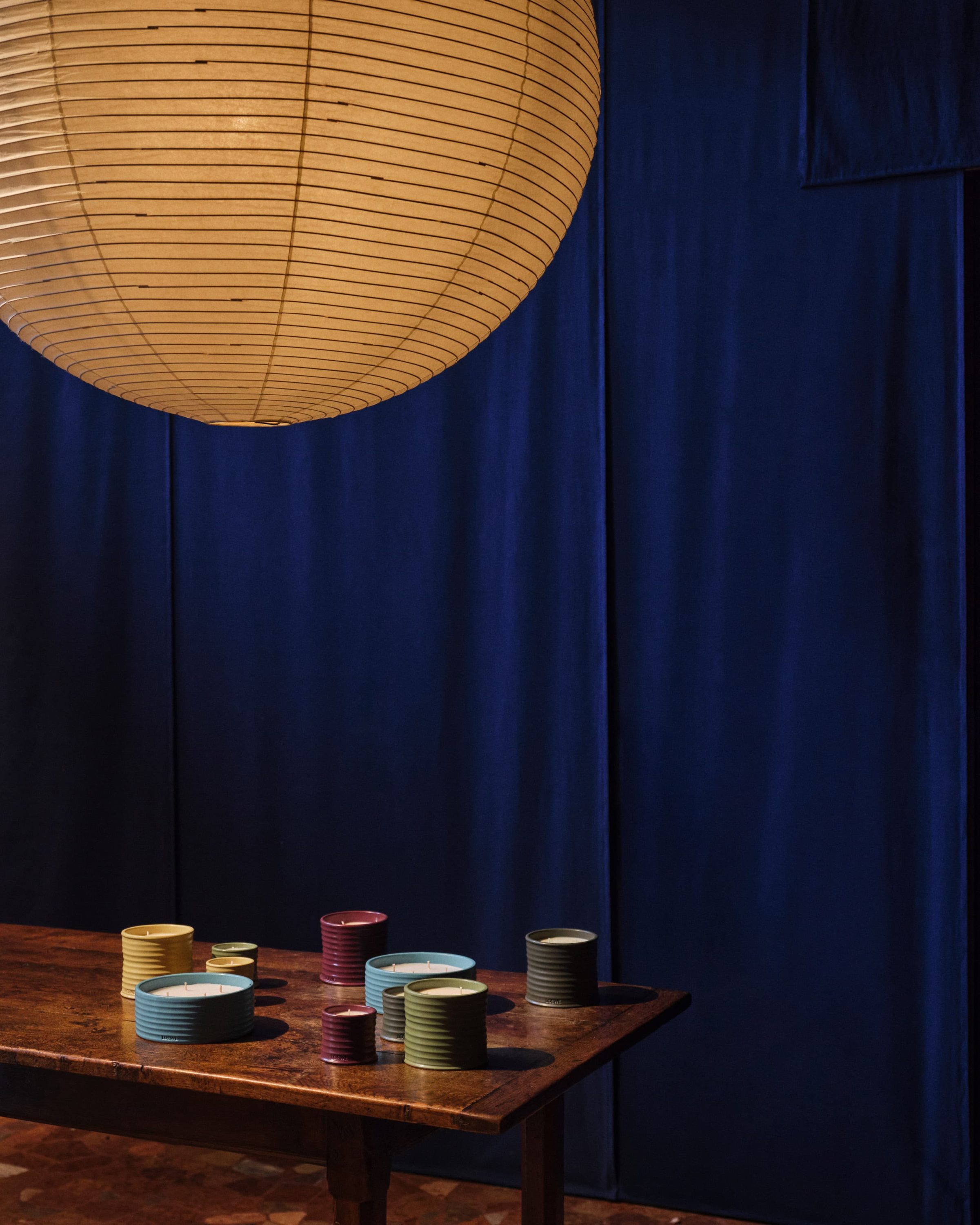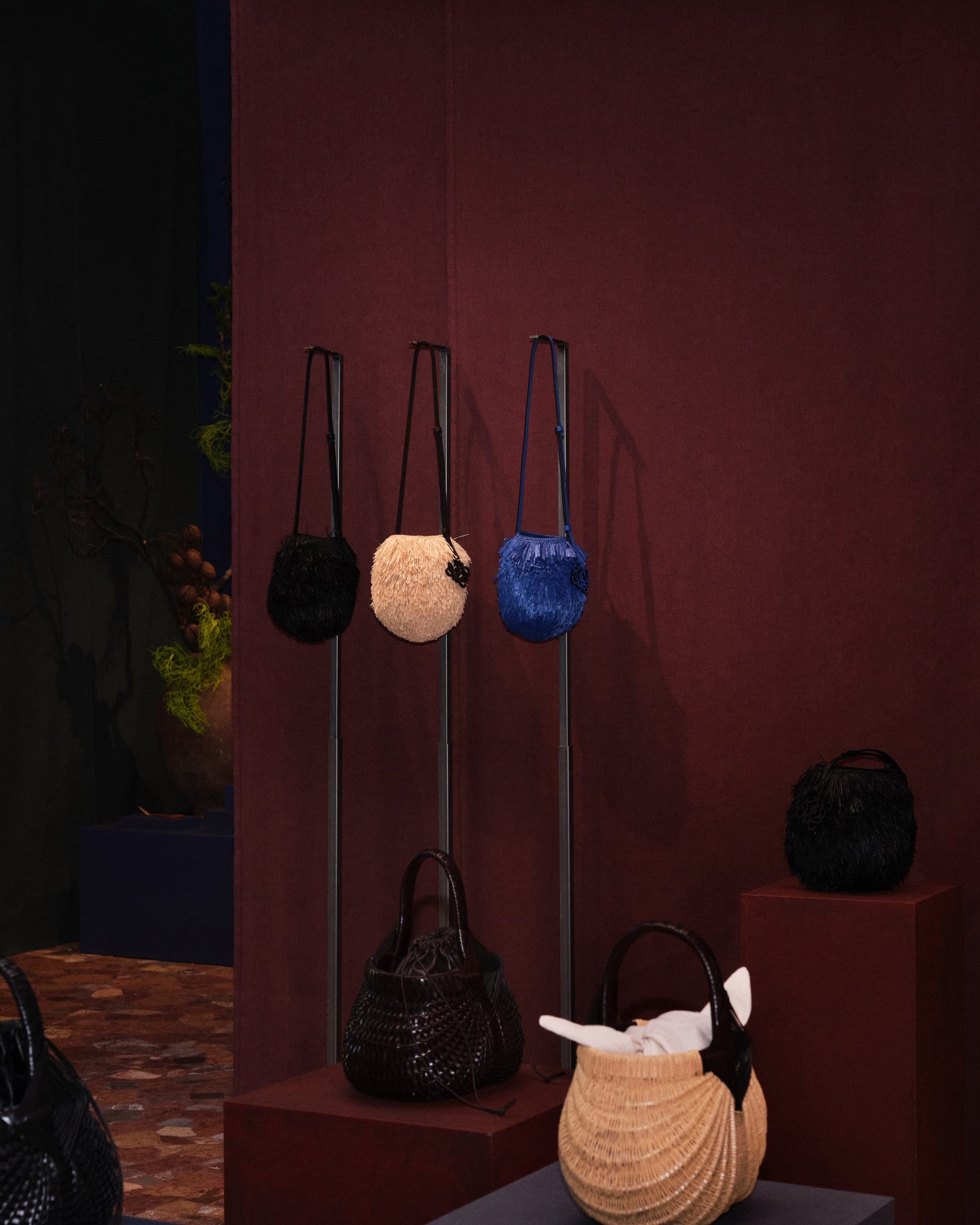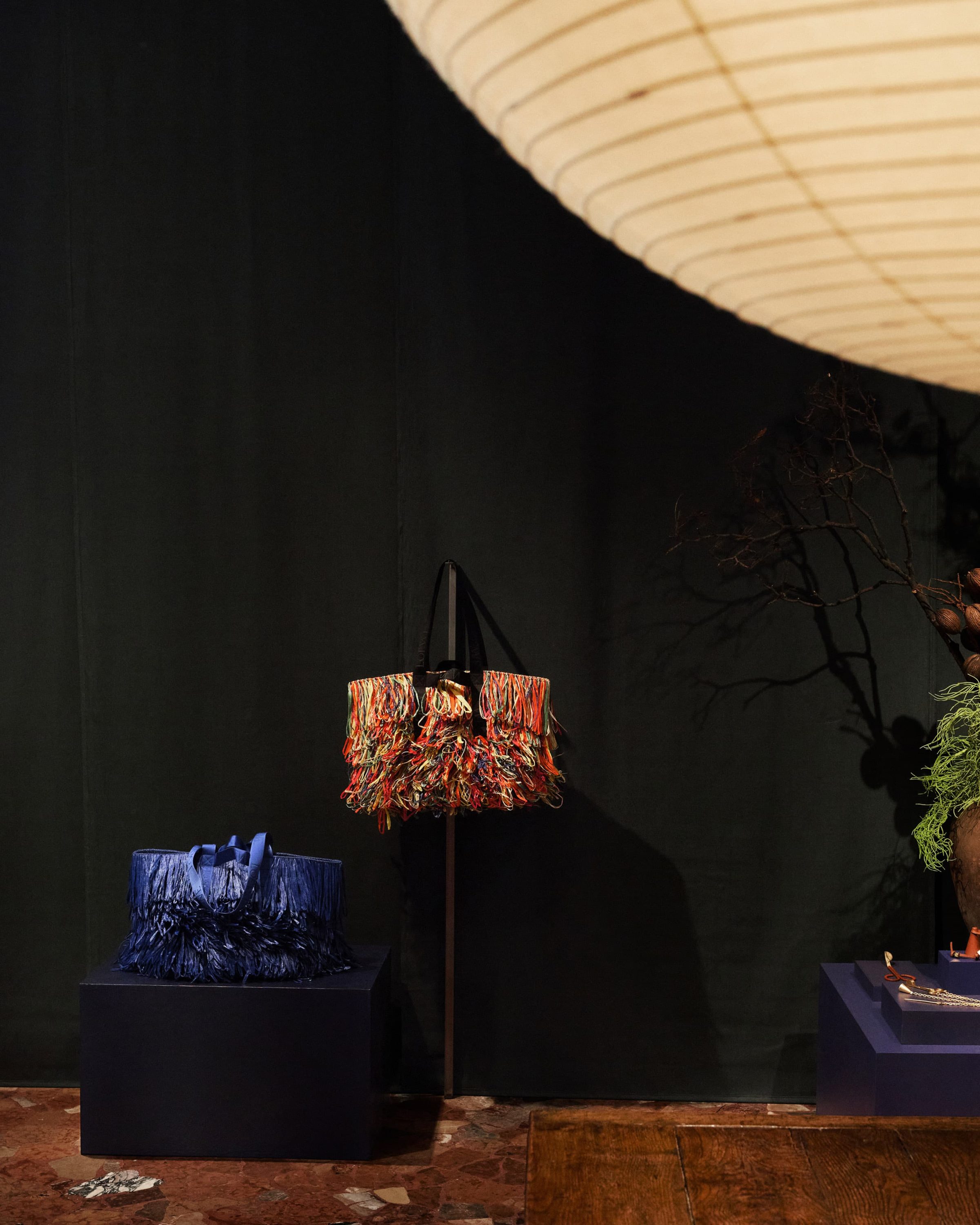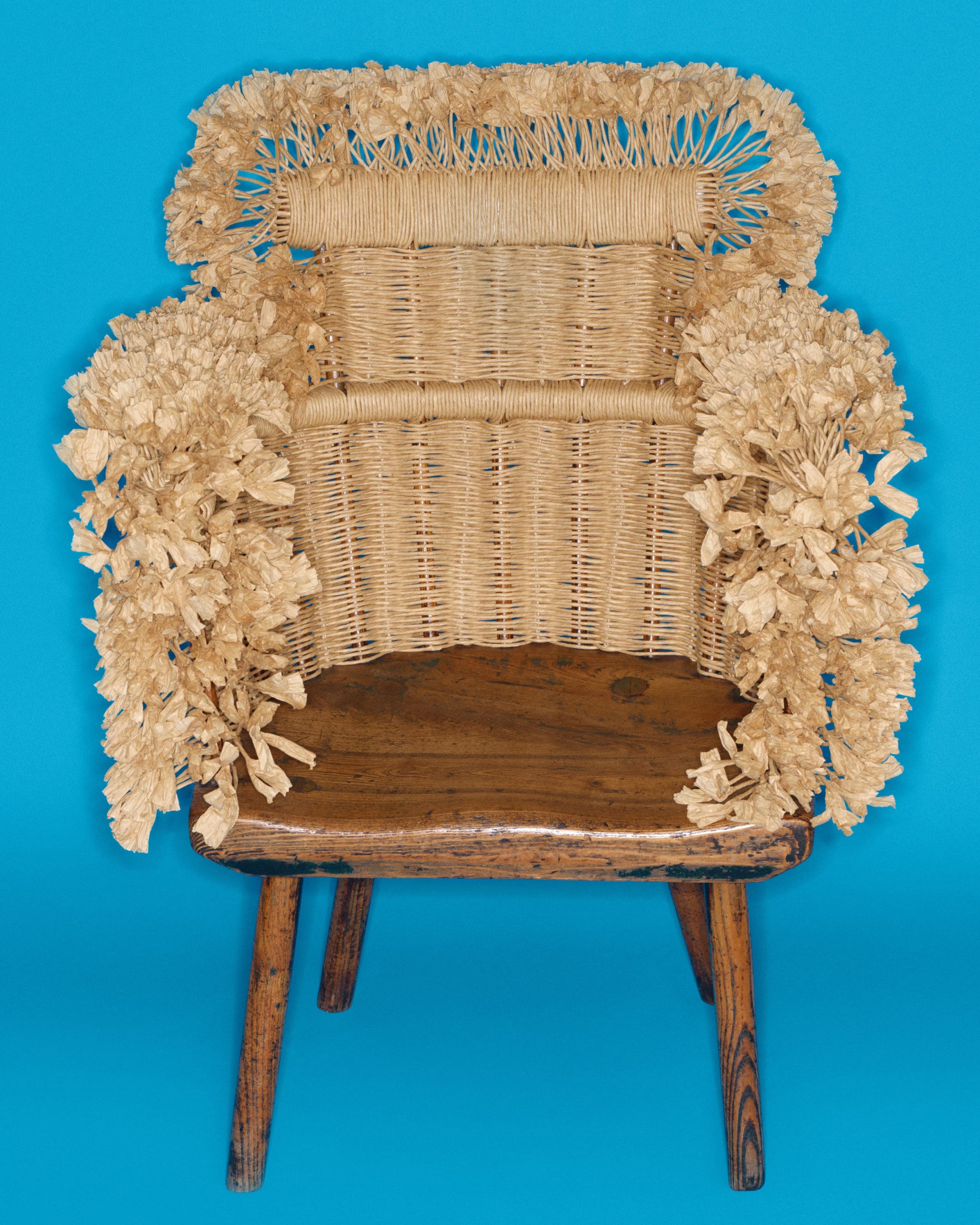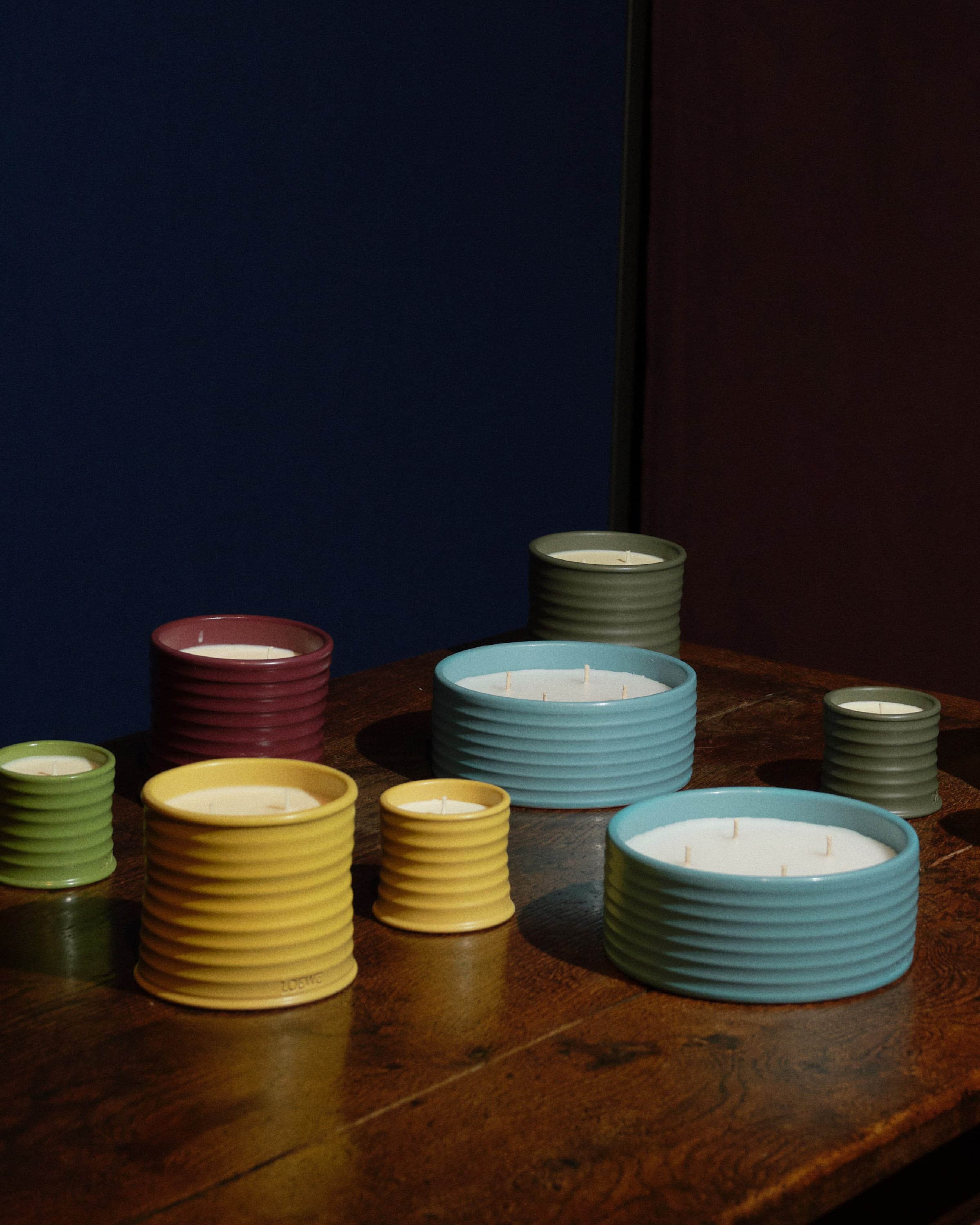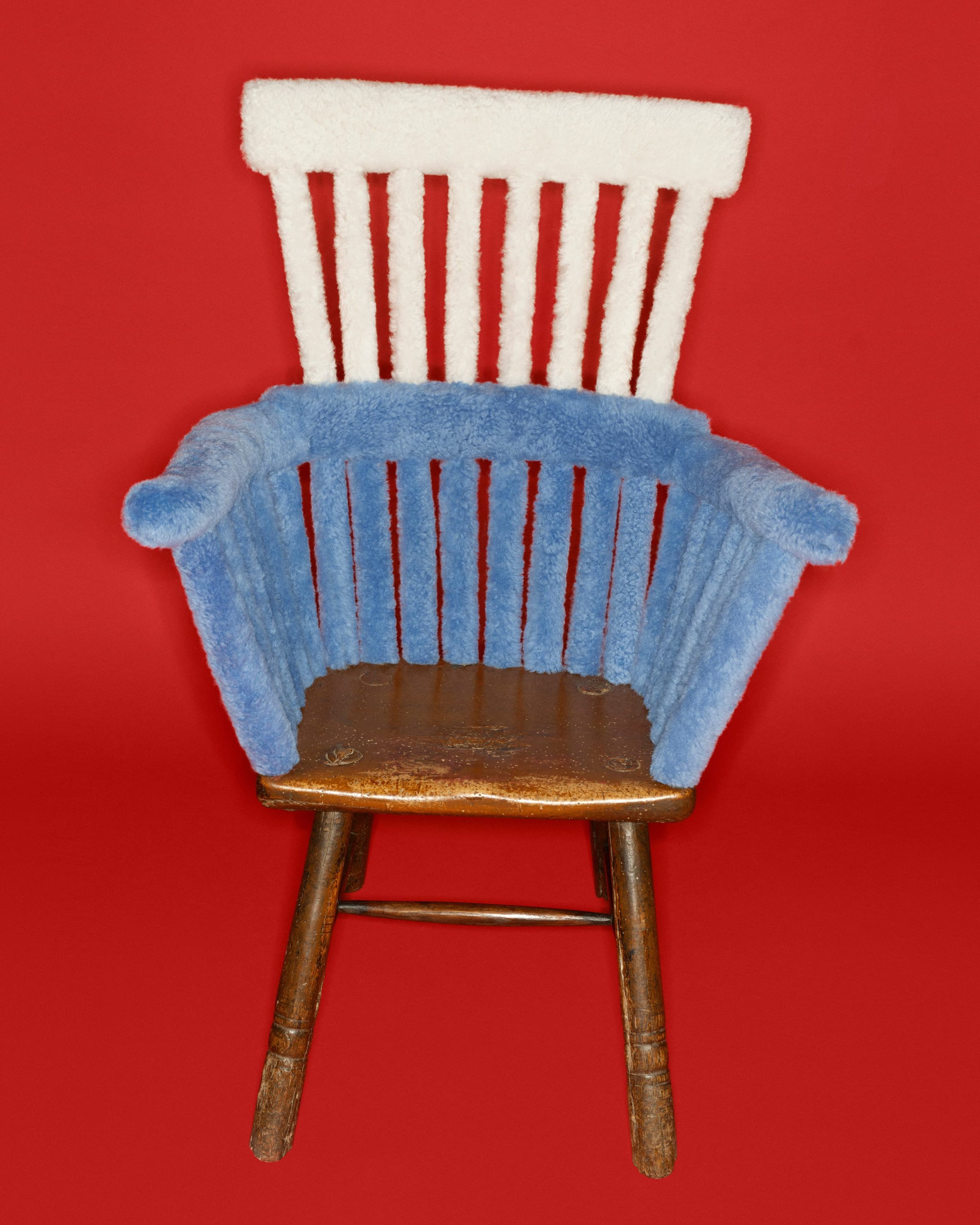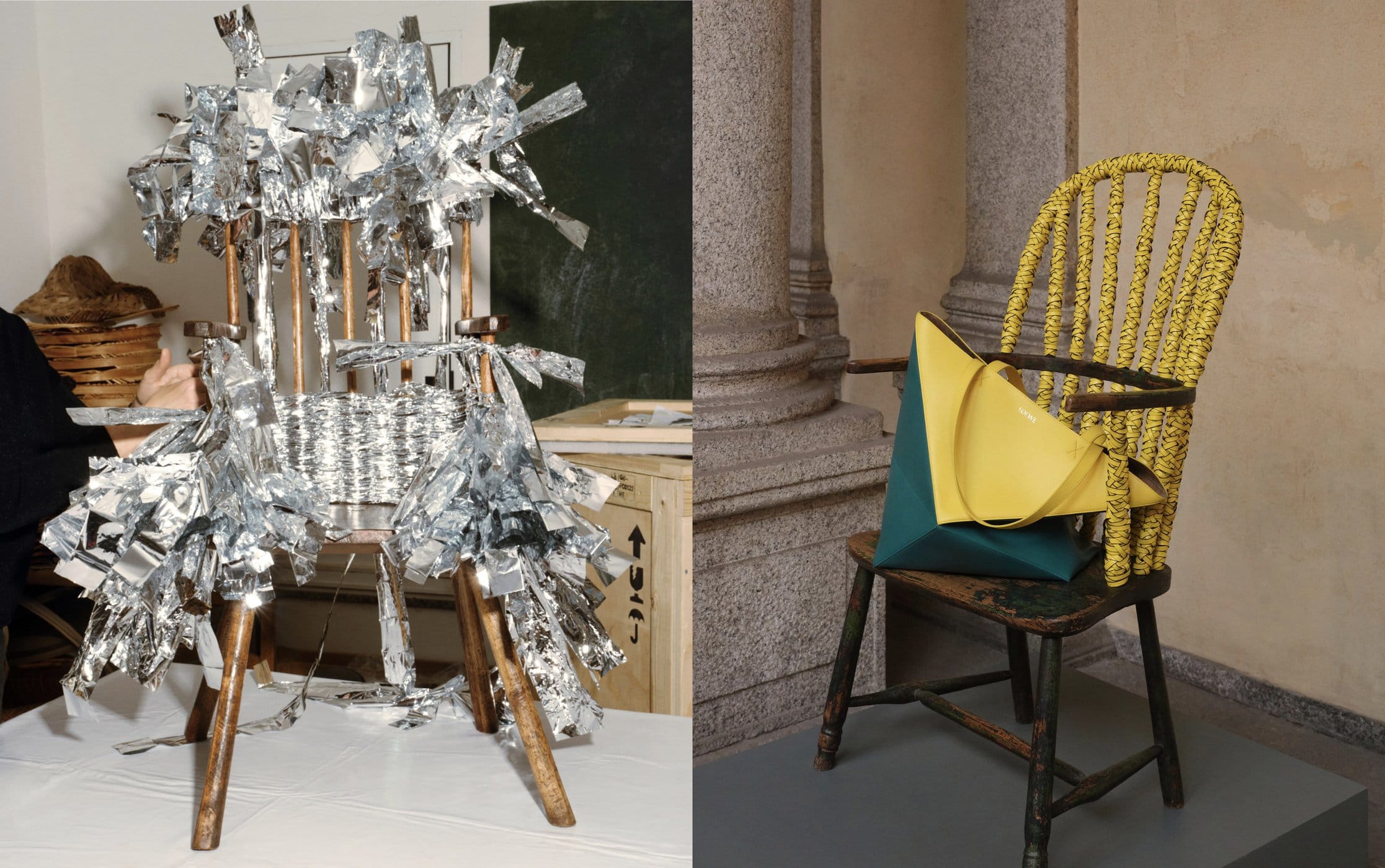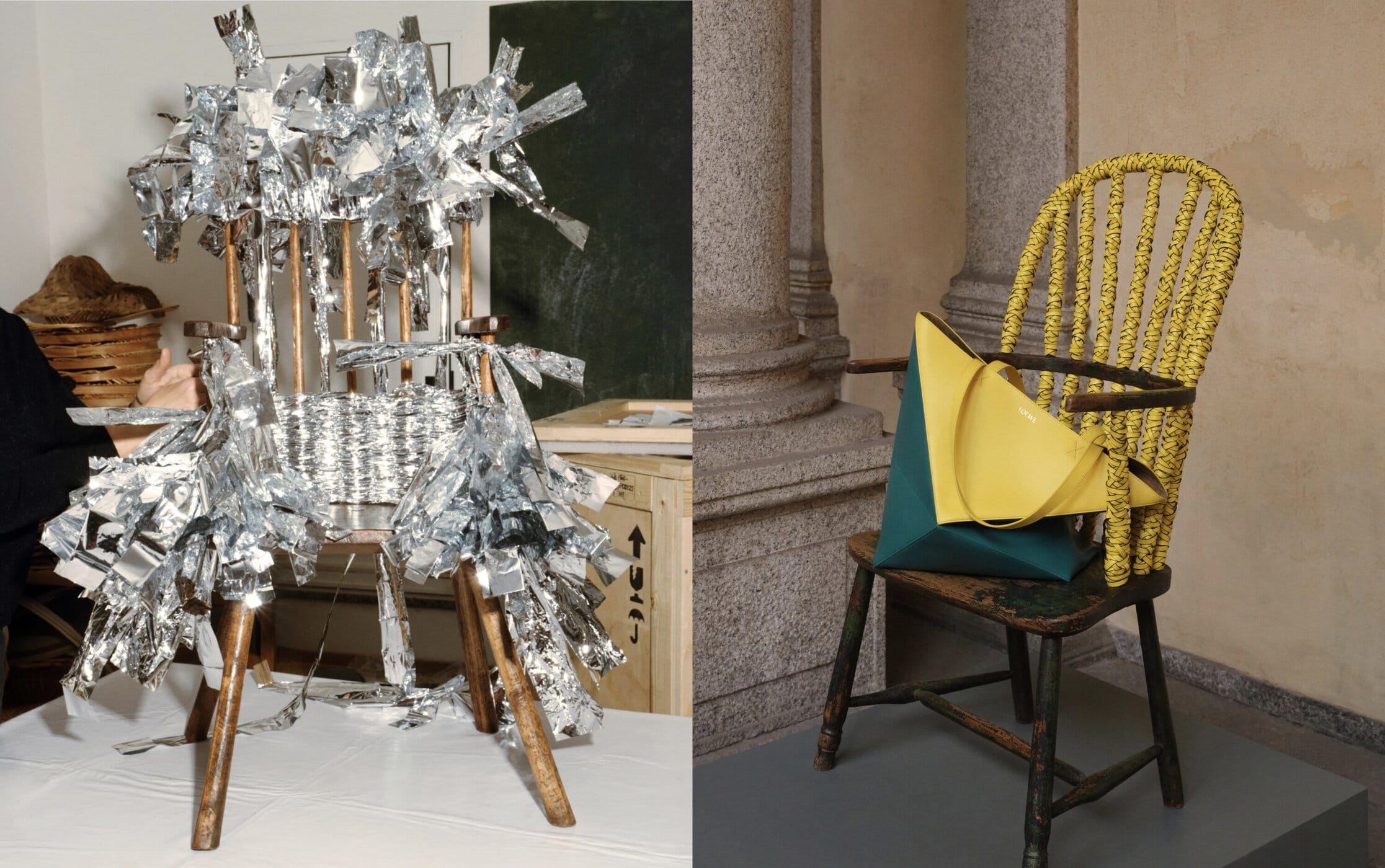Salone del Mobile allows Loewe to expand the focus on craft to objects not linked to its immediate output, creating a language that fosters manual labor and human invention as authentically progressive tools.
Chairs are the protagonists of this year’s project, entitled Loewe Chairs and hosted in the courtyard of Palazzo Isimbardi from April 17 to April 23. The act of weaving and embellishment, seen through the hands and artisanal vision of inventive craftspeople from around the world, allows the reimagining of an everyday, even humble object, transforming it into a one of a kind item. Weaving is explored as a way to create additional textures, to expand shapes in softly sculptural protrusions.
The project showcases different weaving techniques in different materials, some, such as leather, and raffia, close to the Loewe alphabet, others, such as the foil of thermal blankets, completely unexpected. Shearling and felt are used too: as a covering for parts of the chairs and a way of giving them soft, tactile textures. Equally unexpected is the use of color, which highlights the play of materials, maximizing the intervention on the chairs, and the ensuing decorative reinvention. Each creation is the result of a creative dialogue between the artisans, their favorite medium and the object. The humble stick chair becomes a springboard for unbridled woven decoration.
The term ‘stick chair’ refers to the apparent simplicity of construction and appearance of pieces of domestic furniture that have long been considered peasant items, hence not important enough to document. Earliest records point to the time of Hywel Dda, the 10th Century King. Quite varied in shape and form, what stick chairs have in common is the method of construction: all the uprights and legs are fixed into the seat and usually held in place with a wedge. These sticks offer an ideal base for the inventive weaving and applications this project is about. Thirty stick chairs have been embellished: twenty-two are original antique pieces, while the remaining eight have been crafted anew by a British atelier specialized on stick chairs.
Eight Lloyd Loom chairs created by Belgian company Vincent Sheppard round off this survey around the functional and decorative value of chairs. The history of Lloyd Loom, which is a peculiar way of creating a durable woven texture, started in the United States of America in 1917, during World War I, when entrepreneur Marshall Burns Lloyd invented a technique in which paper was twisted around a metal wire and subsequently machine woven into large sheets. Initially intended for baby carriages, the Lloyd loom was soon applied to furniture, as an innovative material suited for outdoors use, way more resistant for this scope than rattan. In 1992, Vincent Sheppard acquired the patent and established a factory in Cirebon, Indonesia, an area famous for its tradition in weaving techniques and rattan bending. The Loewe Lloyd Loom chairs are made of natural fibers and leather. One is painted with a mushroom motif, and all of them are woven according to the Lloyd Loom technique thus further expanding the possibilities of basketry within the Loewe language.
All chairs are for sale. Bags and leather goods inspired by the materials and techniques embellishing the chairs will be exclusively sold during the event.
